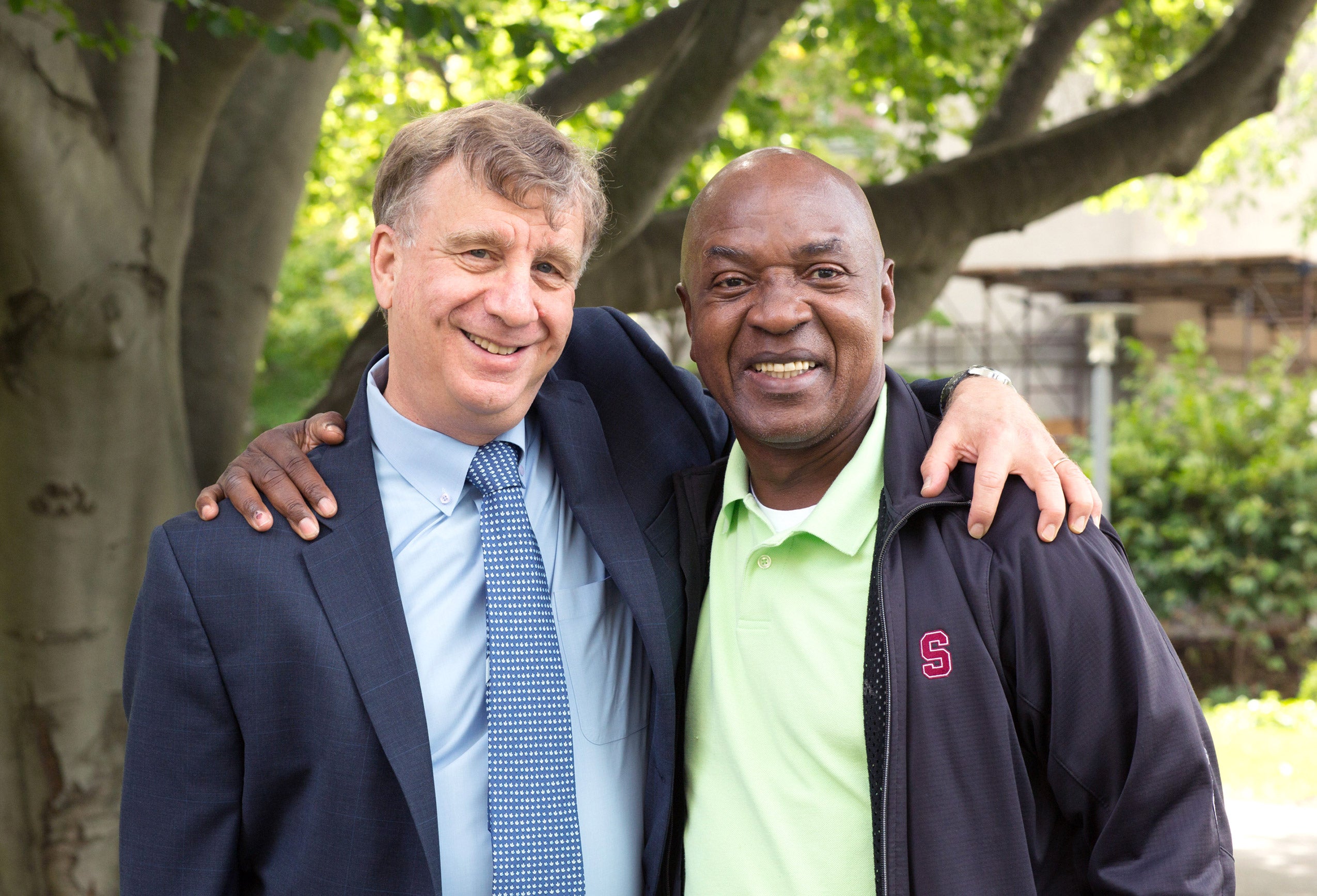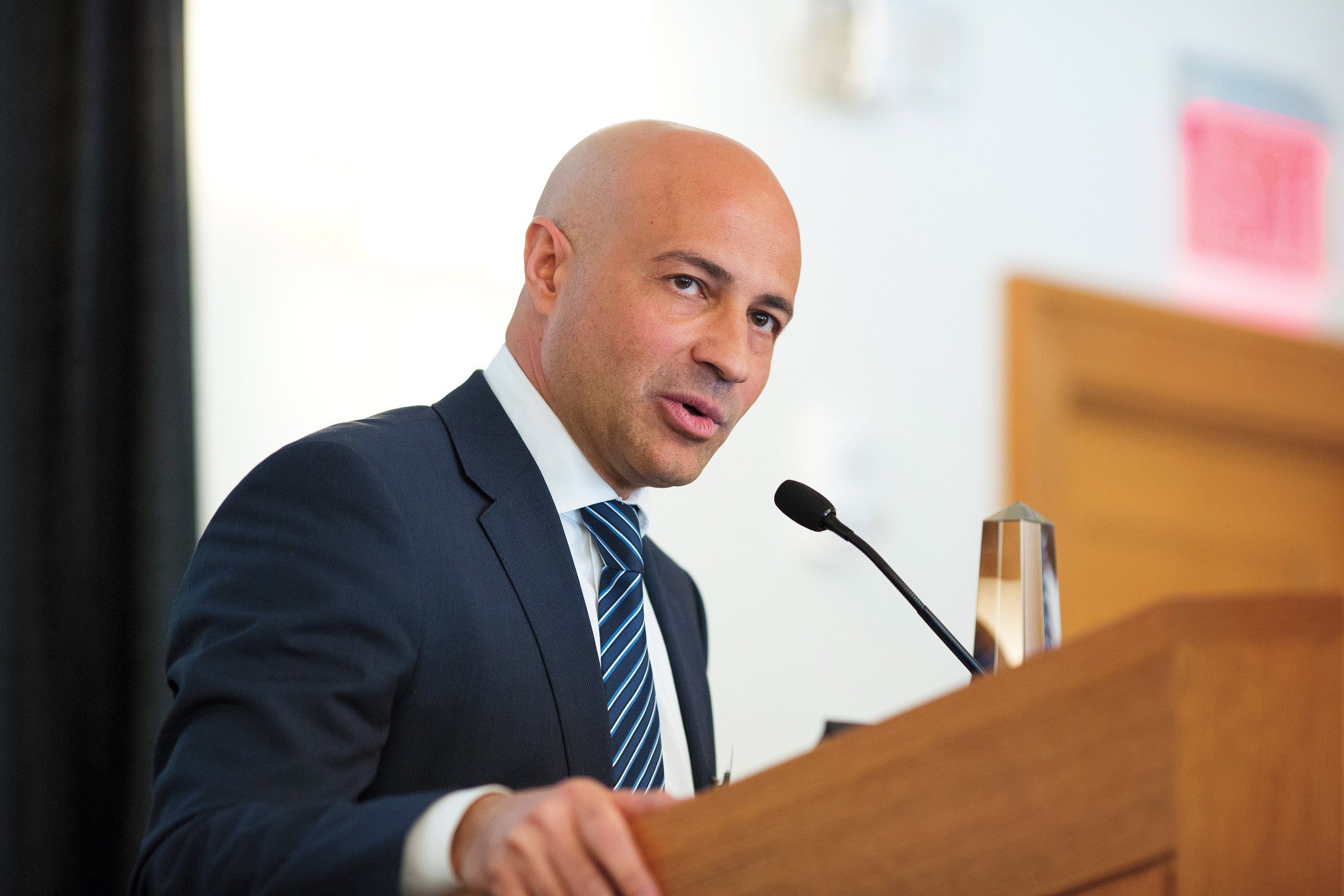Halfway into his term as president of the Harvard Law School Association, Salvo Arena LL.M. ’00 says one of the questions he hears most often when he meets with other alumni is, What exactly is the HLSA and what does it do?
Part of the answer is logistical: The HLSA is really “like the mother ship,” he explains, overseeing and providing coordination and central services to all HLS clubs and shared interest groups around the world.
HLSA Award Recipients

William Alford ’77 and Charles Ogletree ’78 share a number of HLS milestones. Both graduated from HLS in the ’70s, joined the tenured faculty in the ’90s and now direct HLS programs. Alford, a Chinese law and legal history scholar and passionate advocate for the disabled, leads the East Asian Legal Studies Program and is chair of the Harvard Law School Project on Disability, and Ogletree, a legal theorist and influential social justice advocate, heads the Charles Hamilton Houston Institute for Race & Justice. This year the longtime friends shared a distinct recognition when each received the HLSA Award in honor of their visionary leadership and commitment to HLS.
Recently, Arena says, it has helped to launch three new shared interest groups: the Private Equity and Venture Capital Network; the In-House Counsel Network and the Entrepreneur’s Network. It also has bolstered the efforts of clubs that have undergone leadership changes.
He is proud of the fact that during his tenure the HLSA has recognized two outstanding HLS professors, William Alford ’77 and Charles Ogletree ’78, with the association’s highest honor.
He is also proud that the HLSA has enlarged its executive committee. “We have lawyers and judges, as in the past, but we now also have members engaged in the private equity sector, investment bankers, lawyers from the Americas, but also from Europe and Asia.”
One of Arena’s goals is to have the HLSA be more connected to the alumni associations of other Harvard schools. He imagines a collaboration with the Harvard Business School Alumni Association, for example, which would lead to a joint leadership forum. “I believe that is the direction we need to go.”
He also wants to focus on improving mentoring activities both on a local basis and on a national basis.
Later this fall, the HLSA will officially launch its new website, which will make it much easier to find events all over the world and “to facilitate the connection of alumni.”
The association has added more content on LinkedIn, started an Instagram account and improved content on existing social media channels.
“These are all tools,” says Arena, “keys to open the door. But once you open the door, the extraordinary power of the HLSA is people—it’s the alumni, which is something astonishing. What we are trying to do is make the alumni more and more aware of the phenomenal and beneficial resources that we can have being part of this community.”
Beyond the details of what has been accomplished, when people ask Arena about what the HLSA does, his answers come down to its potential to connect.
“I do believe that alumni can really help each other in very powerful ways,” he says. “And again, it’s all about the network. We are talking about a potential network of 38,000 people. The network is not just your class,” says Arena, who is the managing partner of the New York City office of the Italian law firm Chiomenti Studio Legale, “but a global network of all Harvard Law School alumni.”
